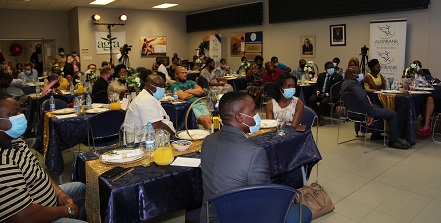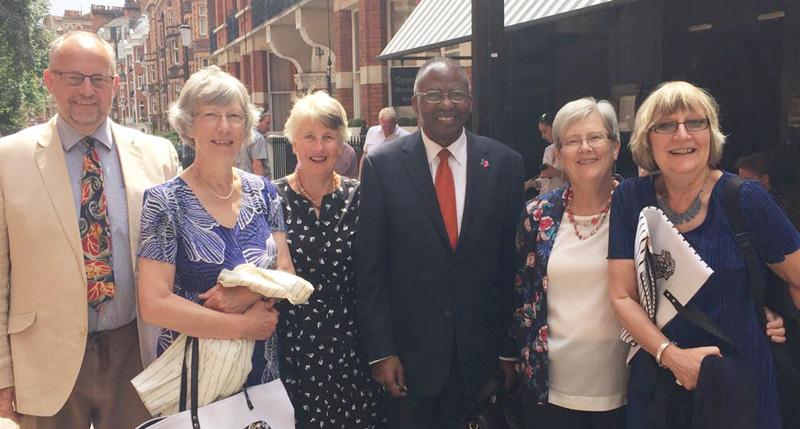
Day of the African Child remembers sacrifice of Hector Petersen

Although 16th June is not celebrated in Namibia as a public holiday, the significance of the events in 1976 in Johannesburg’s Soweto township, is remembered through the commemoration of the Day of the African Child.
Marking this important turning point in Africa’s liberation, the Deputy Minister of Agriculture, Water and Forestry, Hon Anna Shiweda last week celebrated the Day of the African Child together with the learners of Welwitschia School.
Taking the young learners, many sometimes unaware of the painful struggle, back to 1976, Hon Shiweda told them about Hector Petersen, and the ultimate sacrifice he made on this fateful day.
“The commemoration of June 16th is informed by a difficult and painful history, a history characterized by sacrifices and indicative of how African children gave up the enjoyments of their childhood, and opportunities to education to bring freedom, equality and justice that we are enjoying today” the deputy minister said.
“It was on this particular Day, the 16th of June 1976 that students and learners in South Africa confronted the forces of the then apartheid government in a protest against poor quality education, and to demand their right to be taught in their own mother languages. However, what was supposed to have been a peaceful protest culminated in the killing and wounding of hundreds of children, including a brave boy by the name of, Hector Petersen, who was killed on the spot. If there was any crime that these children had committed, it was their honest and justified demand for a better and quality education” she told her young audience.
“The positive results of the Soweto student uprising are clearly visible in the Namibian schools system today. For example, Welwitschia school can be viewed to be one of those results because it is a multiracial all inclusive school that provides quality education to all Namibian children irrespective of their background” she continued.
Referring to the plight of children across the continent, she said this year’s celebrations are encapsulated by the African Union’s theme for children that focuses on protection, empowerment and equal opportunities.
“The Assembly of the Heads of State and Government of the Organisation of the African Unity (OAU) adopted the African Charter on the Rights and Welfare of the Child in 1990, and then instituted the Day of the African Child (DAC) in 1991, in memory of the 16th June 1976 student uprising in Soweto, South Africa. Since then, the OAU and its successor, the AU, have used this day to remember these children, to celebrate children in Africa, as well as to inspire action towards addressing the challenges that children in Africa face on a daily basis” she stated.
On Namibia’s achievement to protect and promote the rigths of children, the deputy minister said “With the determination and commitment of the Namibian Government and its leaders, the country became first on the African Continent to successfully complete a National Programme of Action for Children. Our country was also one of the first nations in the world to approve the Convention of the Rights of the Child in 1992 as well as to recommend the Declaration on the World Summit for Children. This is sufficient evidence that Namibia has placed great importance on the welfare and well-being of Namibian children.”
“Our children deserve security of a stable family, caring and loving parents. Children do need appropriate feeding and education. The welfare of our children is a collective responsibility of all of us, parents, that is fathers and mothers, teachers, pastors, business people, and the entire community, but most importantly the Government. On this Day therefore, it is imperative that as partners in the education, protection and maintenance of children’s Rights, we take stock of our commitments to this call of duty” she cautioned.
“I want you to always obey and respect your parents, all elders including your teachers as required and directed by the 4th commandment. “Honour your father and your mother, that your days may be long in the land which the Lord your God gives you”. This is the first commandment with a promise, and a promise is a promise.”
“In the same vein, I want to urge you to obey school rules and show love and care towards other learners, irrespective of their colour, race, sex, religion and ethnic origin. By so doing you will contribute to the building of a peaceful and harmonious school environment as well as to the Namibian Nation as provided for in our Constitution and amplified in the concept of the Namibian House, a brain child of our President, His Excellency Dr. Hage G. Geingob.”












































